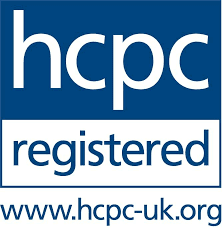Self Compassion and Preservation When In Leadership Roles
Part Three of the 'Psychology of Leadership' Blog Series

"You can search throughout the entire universe for someone who is more deserving of your love and affection than you are yourself, and that person is not to be found anywhere. You yourself, as much as anybody deserve your love and affection."
Buddha
It is undeniable that compassion, considered one of the best qualities in a person, is especially commendable in a leader as they work toward the common good, with the expectation that they would care, often unattainably, for every member of the organisation. Most successful leaders therefore aspire to be kind and compassionate, praised and loyally followed if they succeed in that pursuit. Unfortunately, when it comes to being kind to themselves this aspiration is less evident. Self-compassion, for many, carries the whiff, the connotation, similar to those other words with the prefix, “self”: self-pity, self-serving, self-indulgent, self-centred, of being SELFISH.
Directing Compassion Towards Yourself
How many times have you said to a friend who comes to you for reassurance after a particularly harrowing experience or failure, “It seems hard but you will get through this given time, I’m here for you, this is not your fault, you are great, failure is part of life, I know you did your best”, etc. it can be said with certainty that if you have friends, then not infrequently. You are kind, supportive, think of the best way to be soothing, help them to live through the hard times.
And yet, if you were the person in that situation, your thoughts would probably be “I’m not good enough, this was a huge failure, it’s my fault/ I was lazy, I need to work harder, I failed.”, critical and even degrading of the self. Where does that compassion you had for your friend disappear?
Unfortunately, many of us have been set this ideal of modesty, self-effacement, caring for others but harsh, self critical and degrading of ourselves.
This is especially true for women, who, research indicates, tend to have slightly lower levels of self-compassion than men, even while they tend to be more caring, empathetic, and giving toward others.
Disorder Related Blogs
- Anorexia Nervosa: Recognise the Quiet Killer
- Patient Talk - What Does Severe Clinical Depression Feel Like?
- Dear Mum: A Story by an Oaktree Patient with Depression
- SCHIZOPHRENIA – A Poem
- Autism: Dispelling Myths
- Mental Fitness: “I Have an Addiction”
Lifestyle Related Blogs
- Preventing Online Burnout
- Sad at Christmas? Help Is at Hand
- Burnout at Work
- Mental Fitness: How to Beat Stress
- Mental fitness: Brain Stimulation Therapy
- Mental Fitness: When Should You Stop Driving?
- Mental Fitness: “Let Us Talk About It”
- How to Combat Work-Related Stress
- Foods that make you happy
- Business Spending on Mental Health, Worth it?
- Employers Need More Awareness of Mental Health Issues
Other Blogs
How Can You Practice Being Kinder to Yourself?
How many times have you said to a friend who comes to you for reassurance after a particularly harrowing experience or failure, “It seems hard but you will get through this given time, I’m here for you, this is not your fault, you are great, failure is part of life, I know you did your best”, etc. it can be said with certainty that if you have friends, then not infrequently. You are kind, supportive, think of the best way to be soothing, help them to live through the hard times.
And yet, if you were the person in that situation, your thoughts would probably be “I’m not good enough, this was a huge failure, it’s my fault/ I was lazy, I need to work harder, I failed.”, critical and even degrading of the self. Where does that compassion you had for your friend disappear?
Unfortunately, many of us have been set this ideal of modesty, self-effacement, caring for others but harsh, self critical and degrading of ourselves.
This is especially true for women, who, research indicates, tend to have slightly lower levels of self-compassion than men, even while they tend to be more caring, empathetic, and giving toward others.
The Evidence Towards This Practice
There is now growing evidence in research that proves that self compassion makes the leaders and those in caring professions less likely to experience stress and burnout; that in general they are more motivated, energised, happy, satisfied with their career, and grateful for being able to make a difference in the world. Also, people with this attitude are more caring, giving and likely to have longer term and stable relationships.
As a leader and manager of an organisation and several teams over the years I have noted that:
- It’s lonely at the top, I realised this when I was excluded from my team social media groups. From being the life and soul of a party and my company staff looking forward to evenings out with me, I turned to a manager not to be trusted, ‘from the dark side’.
- Buck stops at you so you end up working the hardest- The authorities, regulators, partners, customers, everyone expects you to make the right decisions at all times
- You are closely watched and open to abuse and criticism- By leading, you by default somehow, vouch for everyone’s mistakes and lapses or at the very least for discovering any and correcting these more swiftly than superman.
- All your faults and mistakes are visible to all and open to criticism.
You are for all intents and purposes, considered superhuman. This is precisely why YOU have to look after and preserve yourself.
Steps Towards Self-Compassion & Self-Preservation, For Leaders
1. Treat yourself fairly- When in trouble or in a situation where your decision has directly caused failure, advise yourself exactly how you would a friend you care about.
This is clearly a skill that takes time to master. You need to stand away, take an objective view, weigh up the possibilities and then form advice that would be helpful in managing the current situation and avoid similar issues to occur in the future.
2. Express Gratitude- On particularly difficult days, consider aspects that you can appreciate in yourself, what you do have, right now. You can choose to write a gratitude journal or go for gratitude walks. By focusing on your blessings you may develop a gentler inner voice and move the focus away from your shortcomings and outward to the world.
3. Enjoy Yourself- No matter how busy you are, indulge in one activity of leisure that you really enjoy, every single day.
4. Seek support- It is a lonely and hard to be a leader, so some support from a confidant or a dear, trusted friend or a coach or a therapist can not be overestimated.
5. Use your brain in its entirety- it is easy to get completely ‘obsessed’ with performance, finances, or any other operations, all activities of the ‘left brain’. Try to wake up that creative side of you that gets quickly buried with the rough and tumble of life. Try creative writing, drawing, acting, designing, gardening, cooking, anything that helps you rest that analytical and logical part and enhances the gentler aspect. You will find that It is soothing.
6. Learn to calm those thoughts- I know the term mindfulness is thrown about extensively now but it is so because being in the present, deliberating on the here and now, is the key to self preservation.
7. Socialise- stay close to friends and family- Isolation breeds self-absorbed ruminations, even paranoia rather than performance-enhancing behaviour Lack of time, single minded working ethic can make going out on a night out with friends hard. This is a slippery slope, so sometimes (frequently) being with friends or family may be the way forward, especially when it is impossible to be kind to yourself,
Do not be discouraged if you can not succeed in employing all of these strategies quickly or ever, it is a process of growth and we know that development is ongoing, luckily our brain and mind grow throughout life and so we will learn to be self-compassionate, if we pursue this objective.
Are you a leader and need mentoring or coaching? We may be able to help. Contact us at contact@oaktreeconnect.co.uk.
Dr Singh is the consultant psychiatrist with a special interest in neuropsychiatry. Having seen and treated hundreds of patients with ADHD, in London and Birmingham and with masters in Neuropsychiatry, she is well known as an expert in this field.
Contact:
Email – clinicadmin@oaktreeconnect.co.uk
Telephone – 020 39277699
Recent Blogs
Oaktree Connect Fees & Pricing for Other Services
There may be additional fees payable after your assessment, for which you will receive an invoice: for example, for the costs for prescribing medication agreed between you and the psychiatrist at the time of assessment. We try our utmost to stay within the time allocated for the appointment however, you could be charged for any extra time spent in the consultation, if the meeting runs over the allocated time, or where communications with you or reviewing notes etc. exceeds what is deemed reasonable, but this is at the discretion of the clinician.















